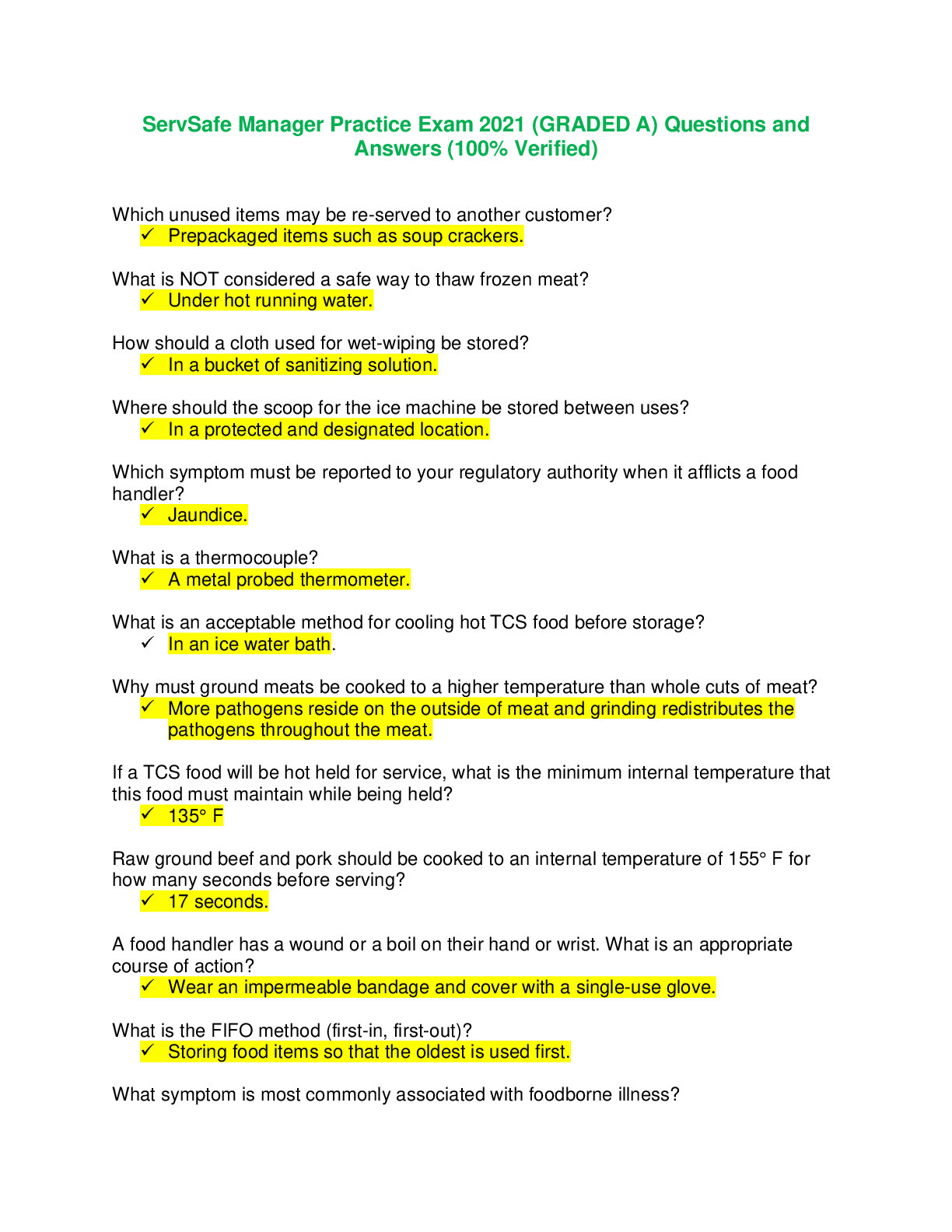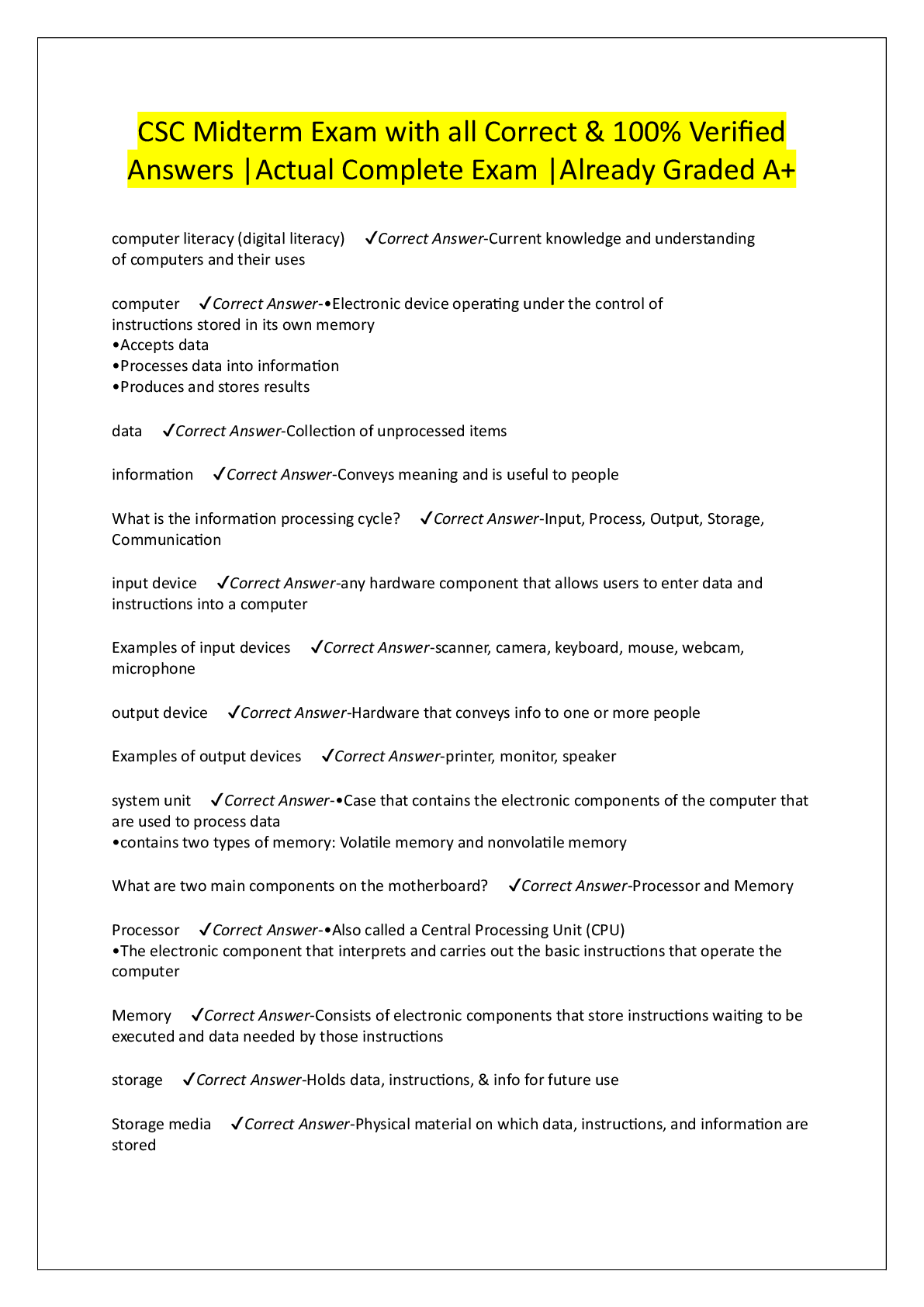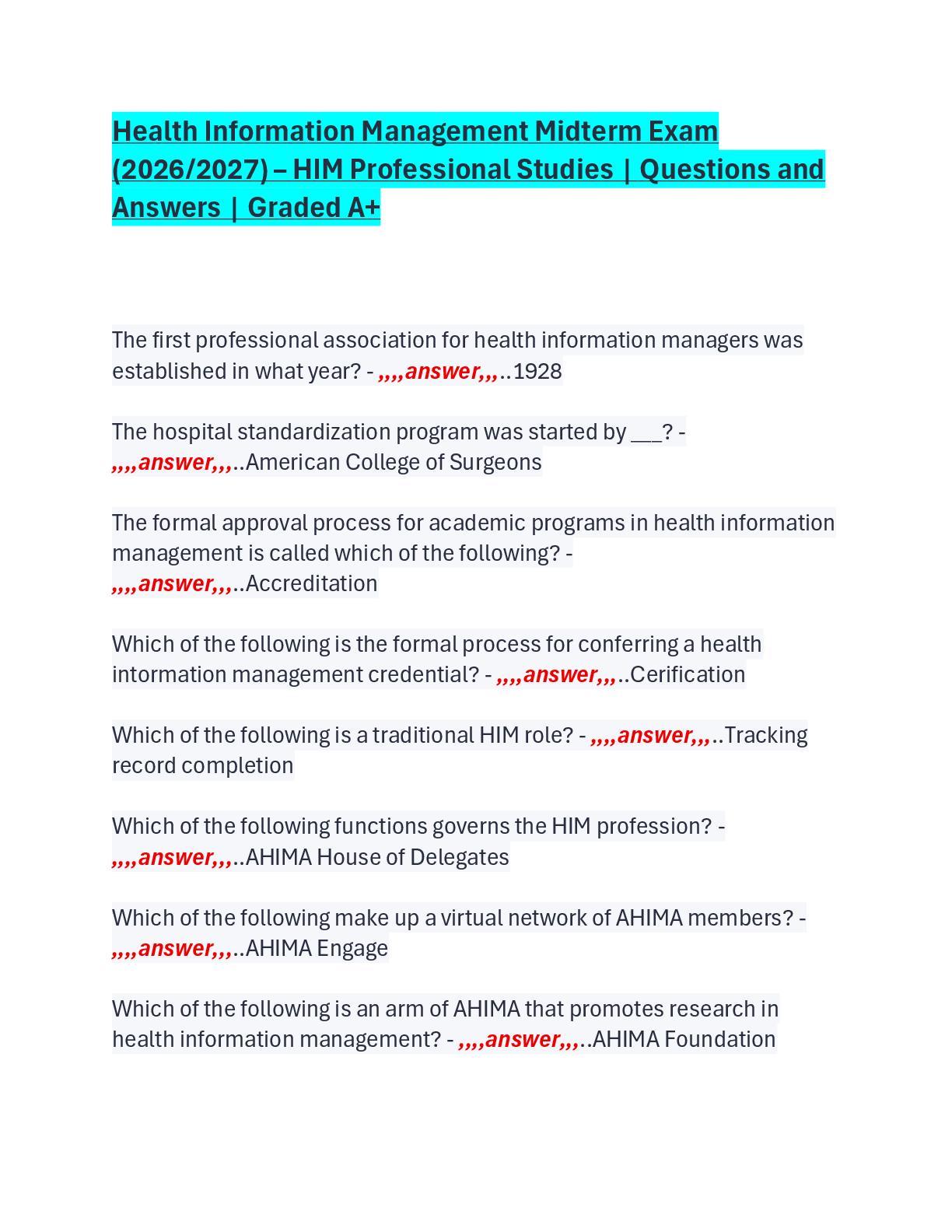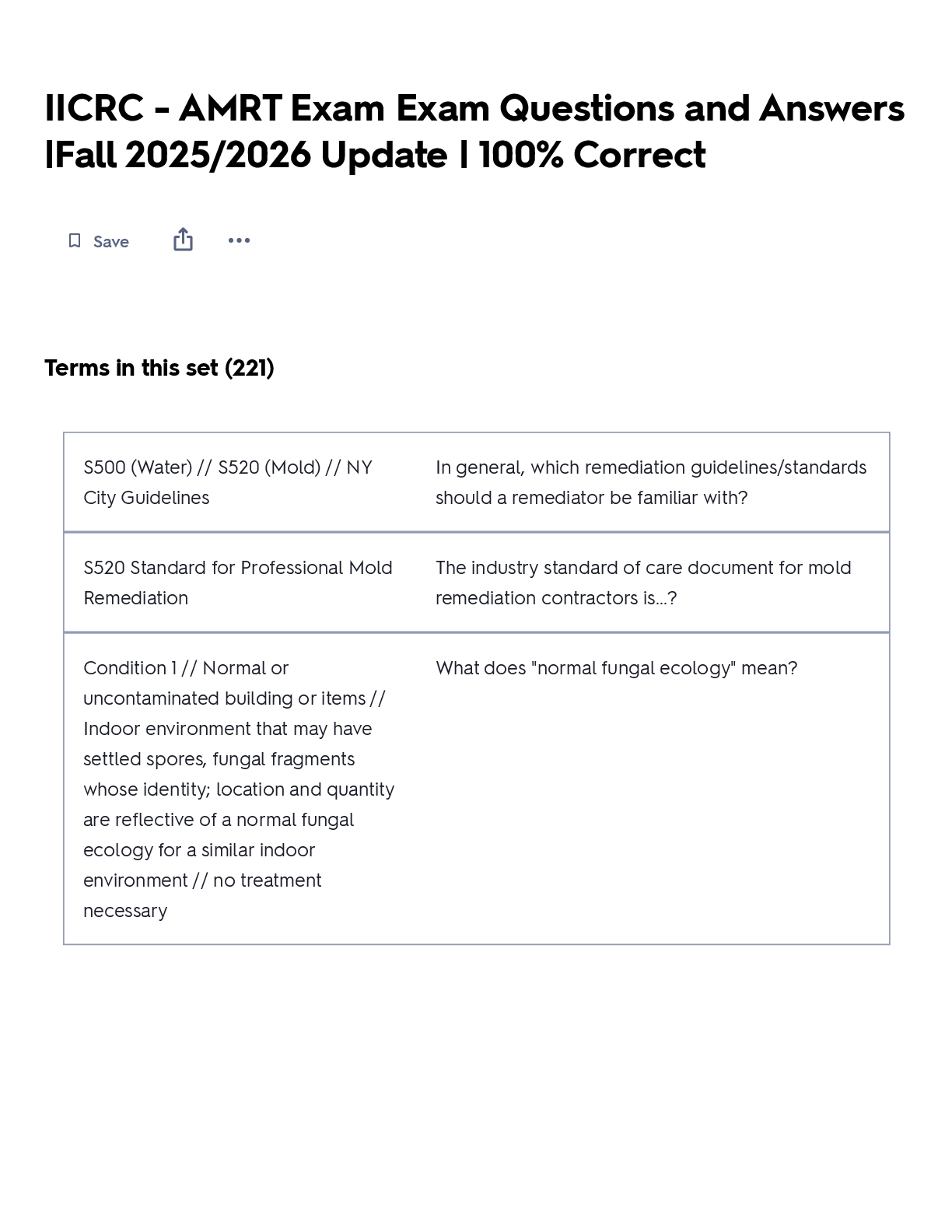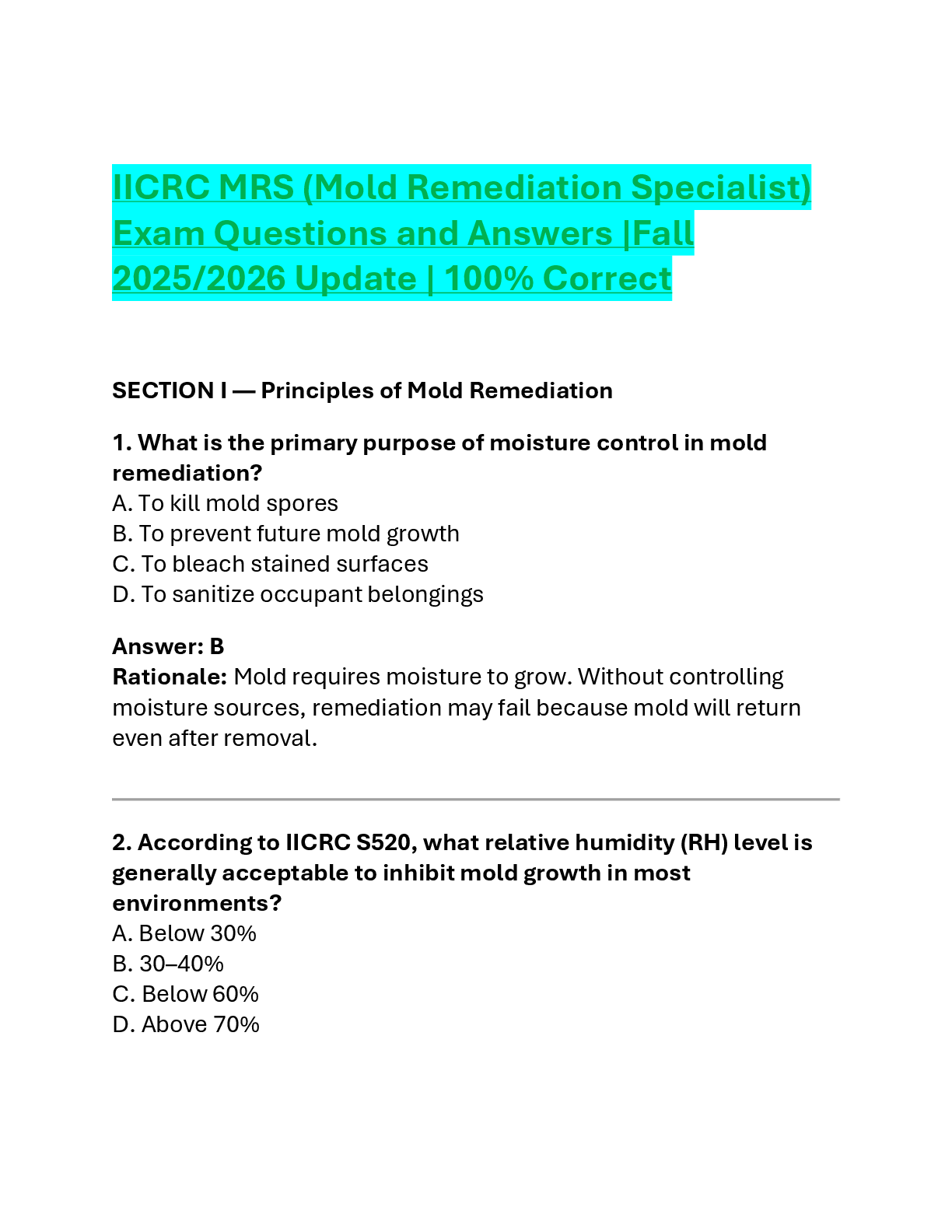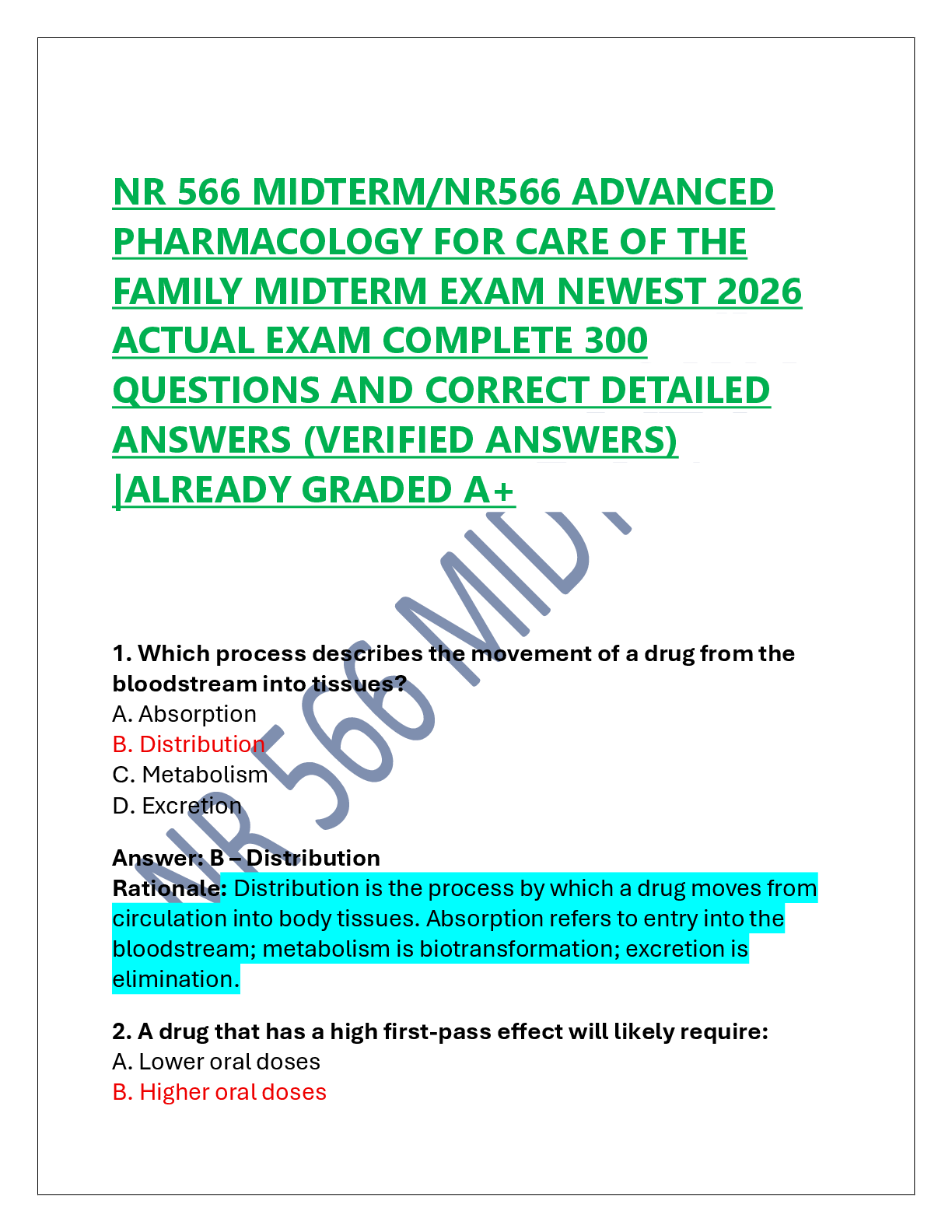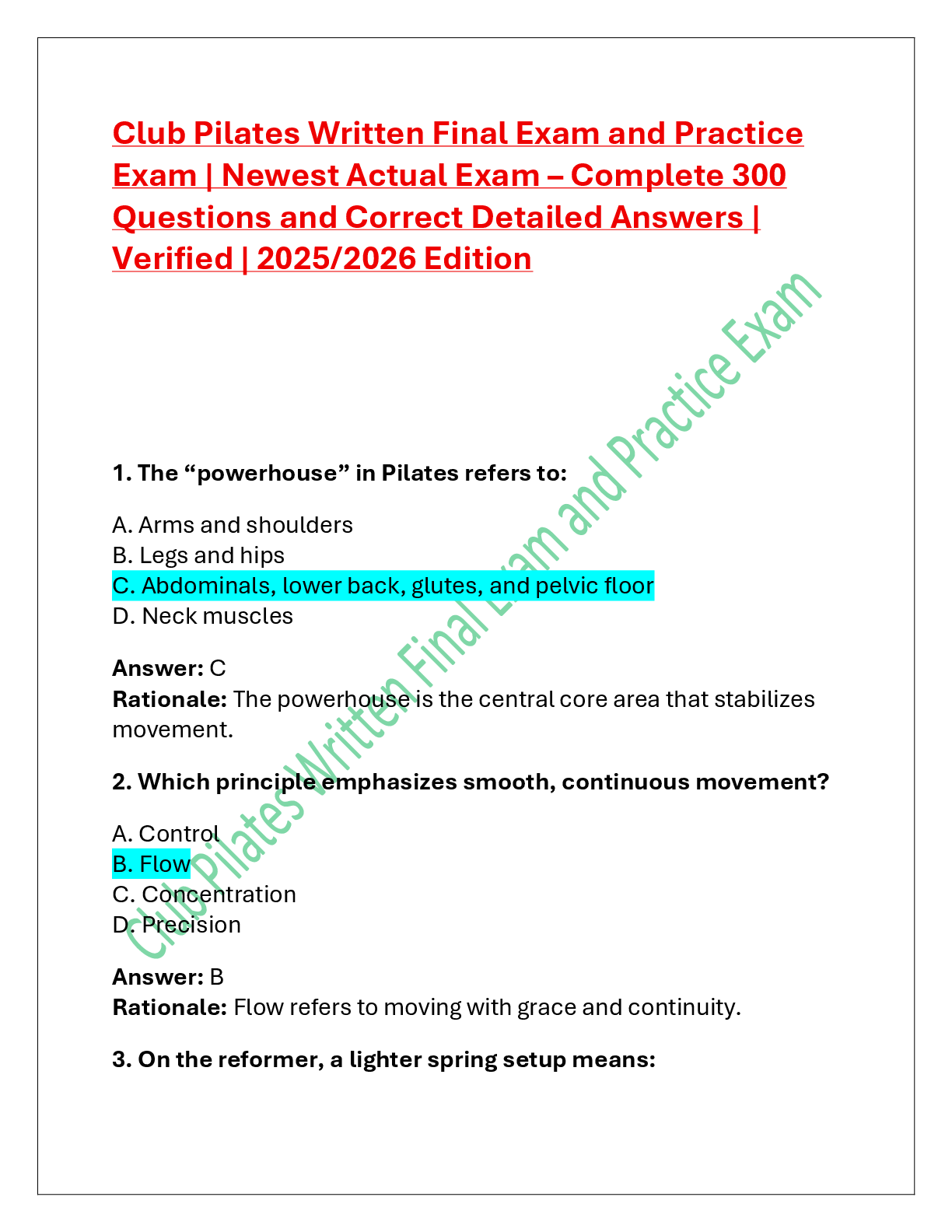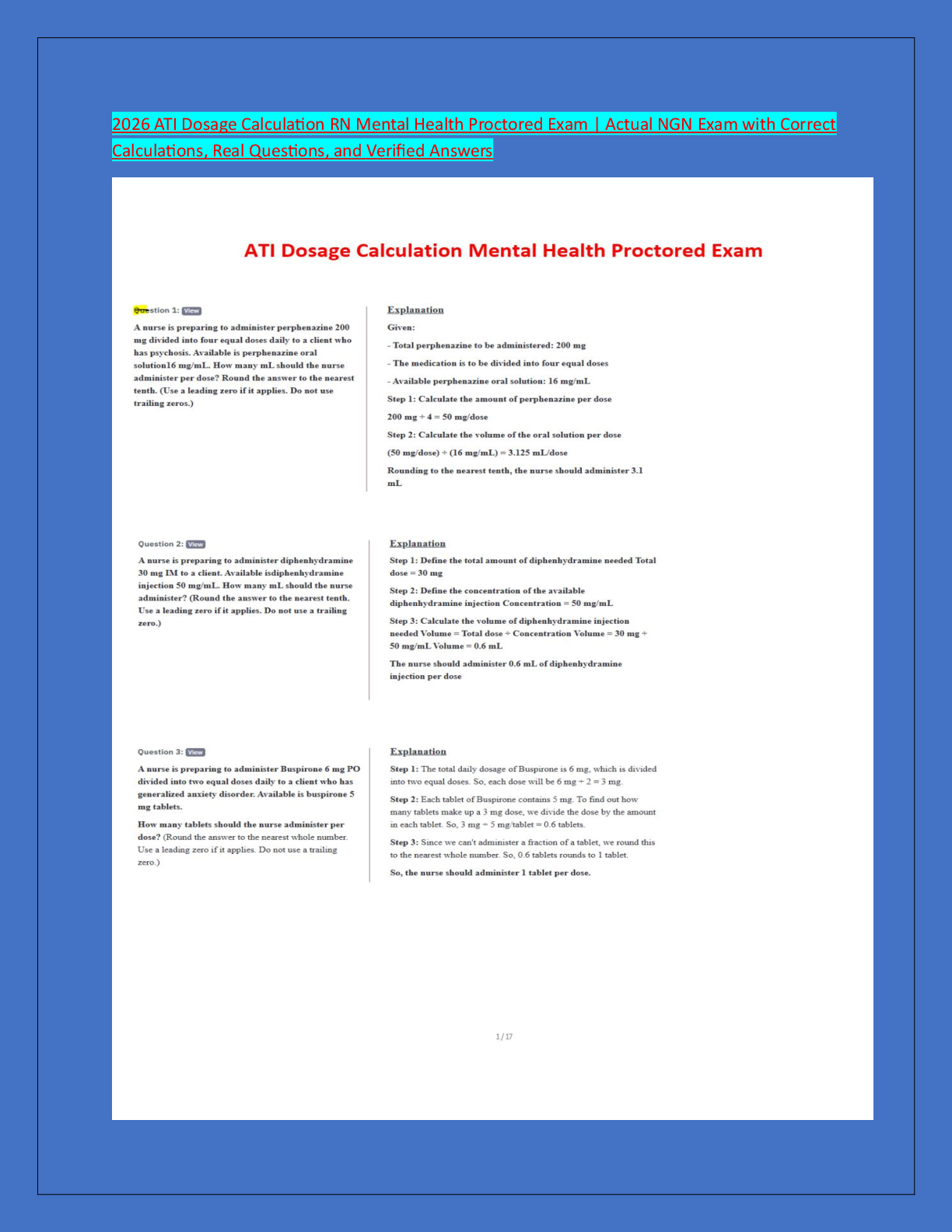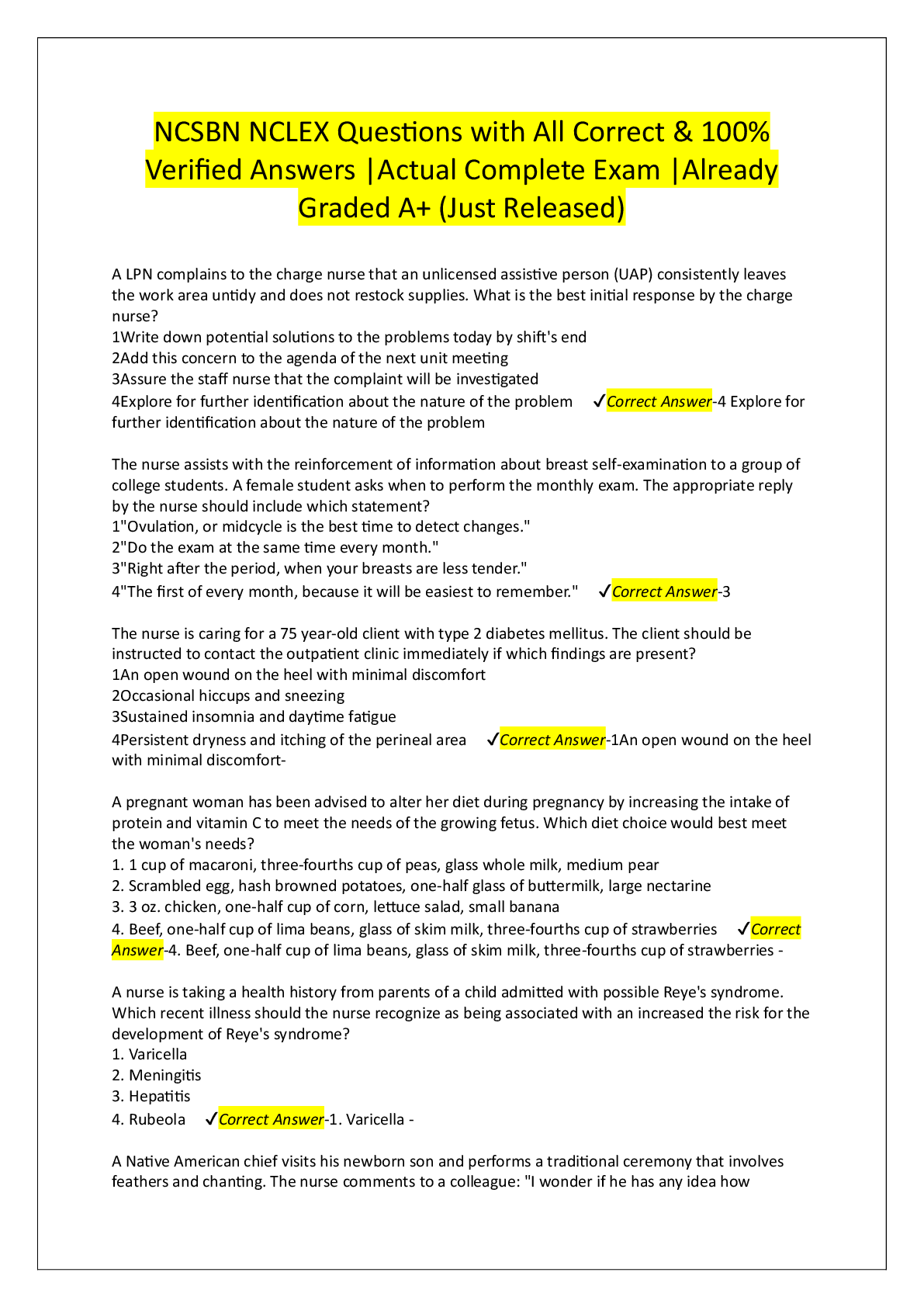Religious Studies > EXAMs > RELI 448N Week 8 Final Exam (Version 2) | GRADED A Questions and Answer solutions | 100% correct ela (All)
RELI 448N Week 8 Final Exam (Version 2) | GRADED A Questions and Answer solutions | 100% correct elaborations
Document Content and Description Below
Multiple Choice Question: (TCO 1) The word religion literally means: Question: (TCO 1) The position that argues that we cannot know whether there is a god or not is known as: Question: ( (TCO 2) ... Who was the German theologian who argued in The Idea of the Holy that religions emerge when people experience that aspect of reality which is essentially mysterious? Question : (TCO 4) Who was the Scottish anthropologist and author of The Golden Bough who saw the origins of religion in early attempts by human beings to influence nature and who identified religion as an intermediate stage between magic and science? Question : (TCO 4) What is the name of the Austrian ethnographer and philologist who argued that all humankind once believed in a single High God and that to this simple monotheism later beliefs in lesser gods and spirits were added? Question : (TCO 8) Vedic religion was: Question : (TCO 8) The power of a god is often symbolized by: Question : (TCO 9) Hinduism, as formulated in the Upanishads, Question : (TCO 10) Both Jainism and Sikhism: Question : (TCO 8) According to the Buddha, his teachings must be: Question : (TCO 8) Once a person reaches nirvana: Question : (TCO 8 ) The Chinese word for “righteousness,” “benevolence,” “humanity-at-its-best” is: Question : (TCO 8) Confucius thought the most important relationship was: Question : (TCO 9) Which is not a Daoist value? Question : (TCO 9) In Zhuangzi’s (Chuang Tzu’s) famous dream, he was not certain that he was not: Question : (TCO 5) All of the following ancient world religions are minor Question : (TCO 11) Sikhism is charaterized by: Question : (TCO 6) A contract between the Hebrews and their God was … a: Question : (TCO 6) The sacred core of the Hebrew Bible is … the: Question : (TCO 6) A joyful spring festival that recalls the Hebrews’ exodus from Egypt and freedom from oppression is: Question : (TCO 7) Jesus sometimes summed up his teachings in: Question : (TCO 7) The most Jewish of the Gospels is: Question : (TCO 6) Muhammad’s job before he became a prophet was as a: Essay Type Question : (TCO 4) Compare and contrast Sigmund Freud’s theory about the origin of religions with William James’s theory. How does each of these psychologists view religion (positively or negatively)? Now analyze how the insights of Freud or James might illuminate your religious tradition or the tradition with which you are the most familiar. How would Freud or James understand that tradition? Use specific examples to support your answer (e.g., a specific belief or ritual). Question : (TCO 9) Identify and analyze the Four Noble Truths, in particular, the Noble Eightfold Path. What ideas from Hinduism did Buddhism essentially keep? Describe them. Include enough details to support your answer. Question : (TCO 3) Explain and evaluate Thomas Aquinas’ Cosmological Argument for the existence of God: The first and plainest is the method that proceeds from the point of view of motion. It is certain and in accord with experience, that things on earth undergo change.…………..move except because of what is moved by the first mover, just as a stick is not moved except through what is moved from the hand. Therefore it is necessary to go back to some first mover, which is itself moved by nothing–and this all men know as God. Briefly explain and then evaluate this proof for the existence of God. Question : (TCO 11) Identify and analyze three basic patterns in indigeneous religions. Use examples from traditional Hawaiian religion to support your answer. [Show More]
Last updated: 3 years ago
Preview 1 out of 10 pages

Buy this document to get the full access instantly
Instant Download Access after purchase
Buy NowInstant download
We Accept:

Also available in bundle (1)
Click Below to Access Bundle(s)

RELI 448N Comparative Religions Entire Course Week 1 – 8 COMPLETE BUNDLE (100% CORRECT ANSWERS)
RELI 448N Week 1 Assignment: Perspectives Essay RELI-448N Week 1 Discussion: The Study of Religion RELI 448N Week 2 Discussion: Upanishads RELI-448N Week 2 Quiz 1: Correct Solutions RELI 4...
By Prof. Goodluck 3 years ago
$14
20
Reviews( 0 )
$14.50
Can't find what you want? Try our AI powered Search
Document information
Connected school, study & course
About the document
Uploaded On
Nov 09, 2022
Number of pages
10
Written in
All
Additional information
This document has been written for:
Uploaded
Nov 09, 2022
Downloads
0
Views
150


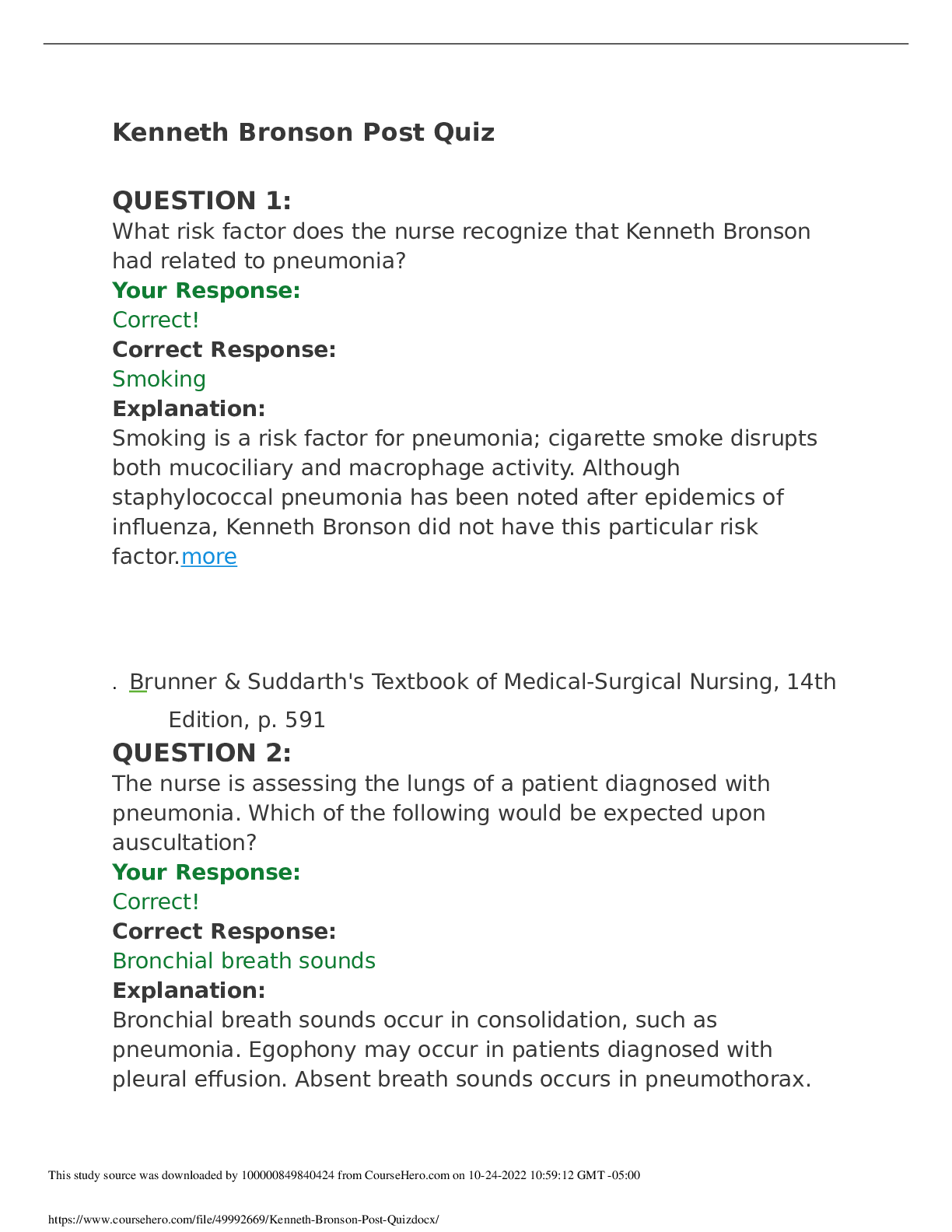

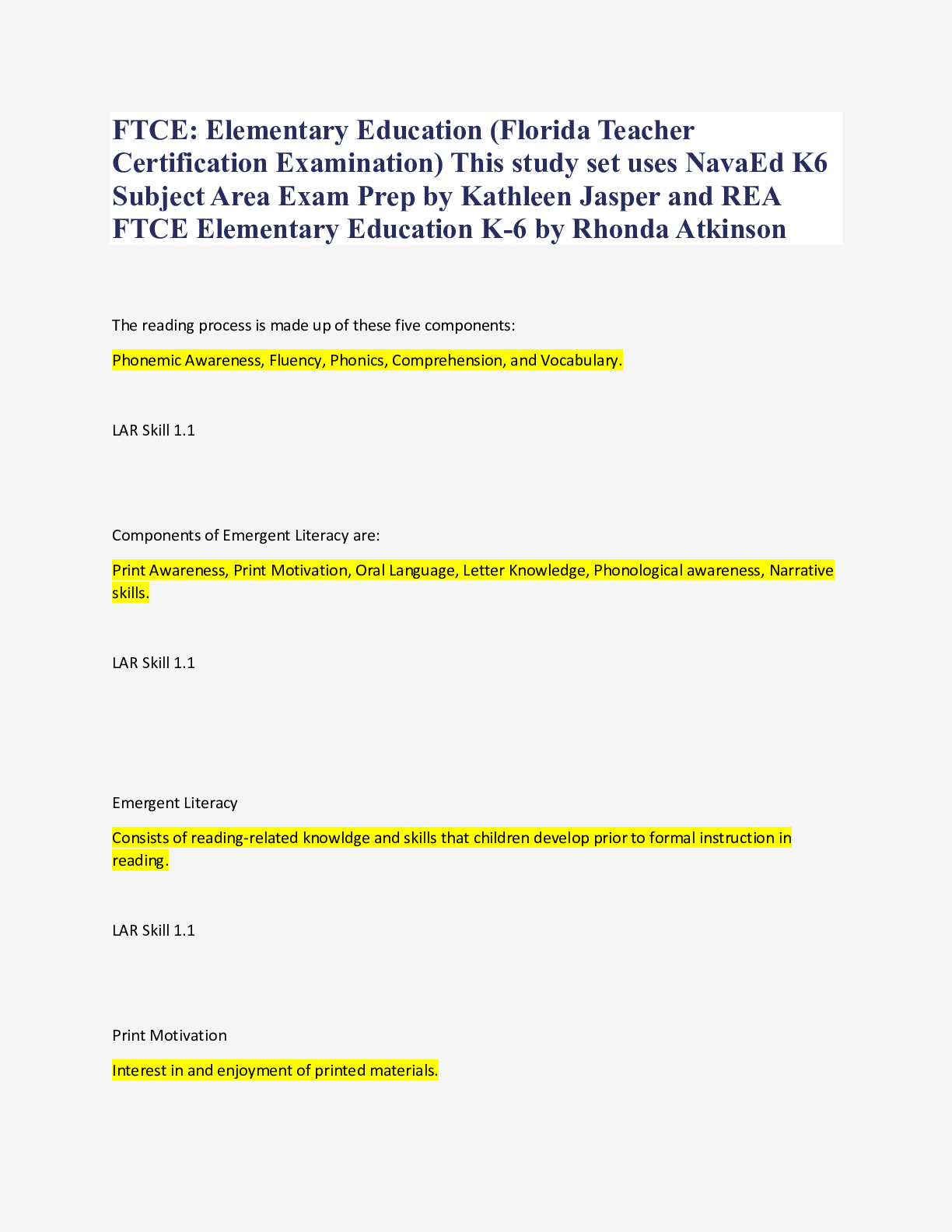

 Questions and Answers 100% VERIFIED.png)
 Questions and Answers 100% correct Solutions.png)



